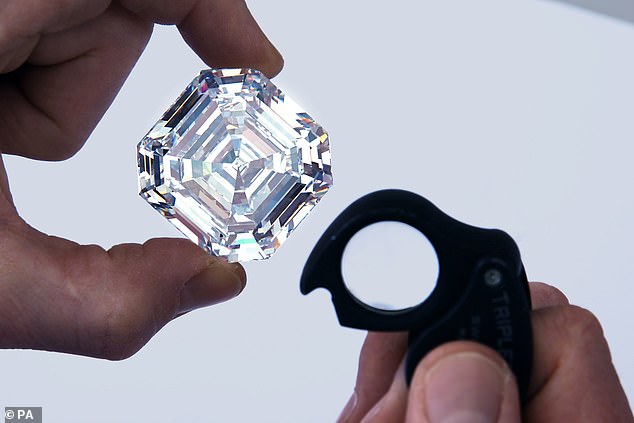Ajan Reginald, chief executive of Roquefort Therapeutics, has a knack for distilling complex strategies into a single sentence.
‘We find diamonds in the rough and we cut and finish them,’ he says, summing up the company’s approach to biotech investment and development.
One example is the planned £8million sale of Lyramid, a business Roquefort acquired for just £1million. The simple arithmetic suggests a straightforward profit, but the real value lies in the work done in the interim.
Lyramid’s midkine inhibition assets (which offer a new approach to targeted cancer treatment) are now at what is known as the pre-investigational new drug stage.
In practical terms, pre-IND is the phase of drug research before human trials can begin. At this stage, scientists are working in the lab to establish how a drug functions, testing it on cells and animals to assess safety and efficacy.
Before regulators such as the US Food and Drug Administration (FDA) allow clinical trials, companies must demonstrate a clear understanding of how the drug works, provide robust data on its potential, and show that it can be manufactured safely and consistently.
With its midkine programme now at this point, Roquefort is preparing to sell Lyramid to Pleiades Pharma in a deal expected to complete by the end of June.
The agreement includes an upfront cash payment that will help fund Roquefort’s two remaining programmes, while also giving the company an equity stake in Pleiades. That exposure to a broader portfolio of drug assets—some already in clinical trials—could prove strategically valuable.

‘We find diamonds in the rough and we cut and finish them,’ says Ajan Reginald, chief executive of Roquefort Therapeutics
There is also the prospect of a windfall if Pleiades is acquired, a possibility given the track record of its chief executive, Caroline Fortier, who has built and sold life sciences companies worth a combined £750 million.
With the Lyramid sale in progress, Roquefort’s focus shifts to assets acquired through its takeover of Oncogeni, a biotech founded by Nobel laureate Sir Martin Evans.
The company is developing treatments in two cutting-edge areas of cancer research: small interfering RNA (siRNA, or gene silencing) and mesodermal killer (MK) cells.
MK cells represent a relatively new approach to cellular medicine, engineered to destroy cancer cells and enhance the activity of the body’s natural killer cells.
Reginald believes these two programmes are the most promising in Roquefort’s pipeline.
The plan is to advance both to the point where they are ready for human trials, with proceeds from the Lyramid sale funding the necessary preparatory work.
Meanwhile, the company is in discussions with potential partners to take the assets further. Out-licensing deals of this kind can be significant value inflexion points, often involving substantial upfront and milestone payments.
Interest, according to Reginald, is strong. ‘There is a lot of excitement around both programmes,’ he says.
For investors seeking exposure to early-stage biotech, Roquefort presents an intriguing opportunity.
Its relatively modest market valuation reflects the broader challenges facing small-cap life sciences companies, but it may also offer an attractive entry point for those with the stomach to ride the irrational undulations of the UK small-cap sector.
Objectively, the Lyramid transaction is worth way in excess of Roquefort’s current worth. So, effectively all the downside has been priced in (and more).
Definitely one to watch.
For more on this story and other small-caps go to www.proactiveinvestors.co.uk
DIY INVESTING PLATFORMS

AJ Bell

AJ Bell
Easy investing and ready-made portfolios

Hargreaves Lansdown

Hargreaves Lansdown
Free fund dealing and investment ideas

interactive investor

interactive investor
Flat-fee investing from £4.99 per month

Saxo

Saxo
Get £200 back in trading fees
Trading 212
Trading 212
Free dealing and no account fee
Affiliate links: If you take out a product This is Money may earn a commission. These deals are chosen by our editorial team, as we think they are worth highlighting. This does not affect our editorial independence.
This article was originally published by a www.dailymail.co.uk . Read the Original article here. .


